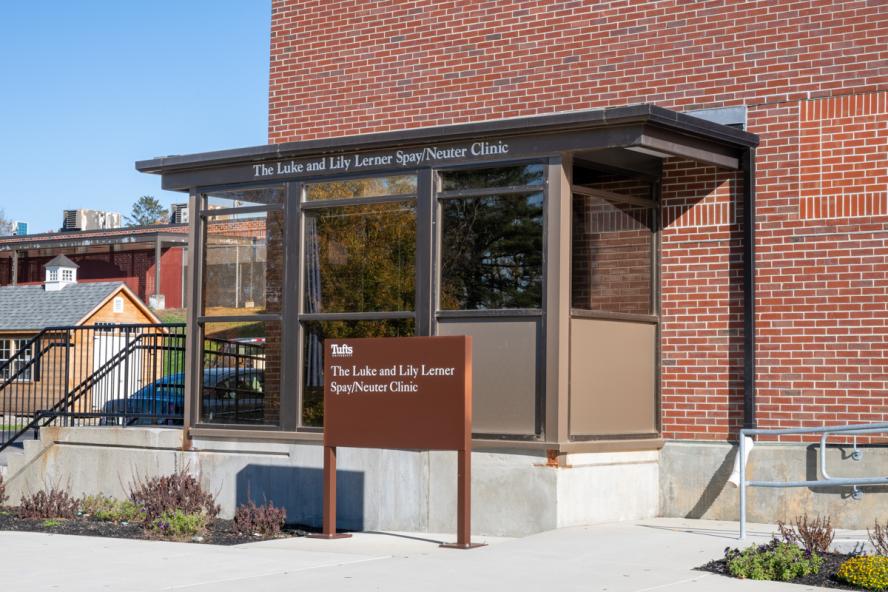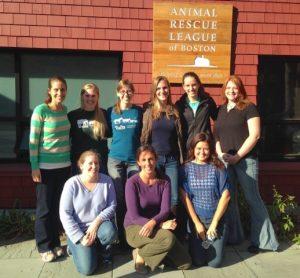-
About
- Leadership & Faculty
- News & Events
-
Academics
- Graduate
- Advanced Clinical Training
- Continuing Education
-
Student Life
-
Research
-
Hospitals & Clinics
- Emergency Care
- Hospital Services
-
Community Outreach
- Volunteer
Learn more about our Shelter Partners
The Tufts Shelter Medicine Program collaborates with a variety of local and regional partners to ensure that the program remains relevant to animal welfare within the area. The program was conceived by a working group of these partners and strives to ensure veterinary students are prepared to work with and for animal shelters. Making sure that the needs of our partners are met is essential to helping achieve the mission of the Shelter Medicine Program.
Shelter partners can be any animal rescue or sheltering organization that provides an opportunity for students to observe or participate in the application of shelter medicine principles. Example experiences for students might include:
- Observing routine health examinations and sick animal checks
- Participating in physical examination and treatment of animals
- Observing, assisting with or performing surgery (under supervision)
- Designing and implementing research projects, particularly those designed to improve the quality of veterinary care offered by an animal shelter.
The specific learning objectives are customized for each partner and experience.
A level-of-partnership system has been created to ensure that every type of organization can have a place in the program. Partnership levels and associated expectations are explained below.
Shelter Medicine Program Steering Committee
Cummings School initially reached out to the shelter medicine community to help plan the Shelter Medicine Program by creating a working group with representation from several key organizations. The working group continues as the steering committee and includes at least one representative from each primary shelter partner, members of the animal welfare community and members of the faculty.
Shelter Partners
-
A primary partner of Tufts Shelter Medicine Program is defined as a partner who can:
- Take students at their facility and incorporate them into pre-defined, formal core shelter medicine rotations.
- Assist in guiding the direction of the program curriculum by providing a representative to serve on the program steering committee.
- Participate in teaching (one to five hours).
- Provide project mentors.
- Participate in humane research for the benefit of shelter animals.
Tufts Shelter Medicine Program’s Primary Partners (as of 12/1/16):
-
Members of the New England animal welfare community collaborate with Tufts Shelter Medicine in a variety of ways, depending on their organization’s mission and needs. For example, they might:
- Host tours and field trips for student groups.
- Take students on elective or rotation, as they are able.
- Give a lunch time talk.
- Be asked to review program curricula.
- Host a student externship or research project.
Tufts Shelter Medicine Program’s Supporting Partners (as of 12/1/16):
Resources for Shelters

Lerner Spay/Neuter Clinic
Luke & Lily Lerner Spay/Neuter Clinic provides various services for shelters. Learn more.

Collaborative for Shelter Dogs
The Collaborative for Shelter Dogs is dedicated to improving the welfare of homeless dogs cared for by humane organizations, animal control facilities and rescue groups. Learn more.
